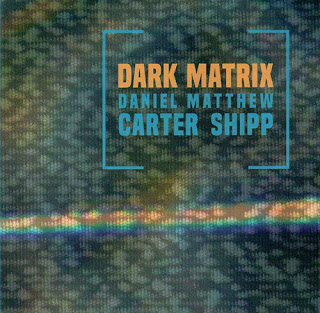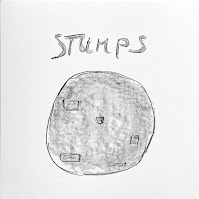Daniel Carter fans had an amazing set of offerings in 2021. On the blog our writers have talked about Playfield (also here ), Just Don’t Die , New York United Vol. 2 , and Painter’s Winter (with William Parker and Hamid Drake), and a few others. But there is so much more. Nick Ostrum and Gary Chapin talk about some of those.
By Nick Ostrum and Gary Chapin
Daniel Carter and Matthew Shipp - Dark Matrix (Not Two Records, 2020) *****
Gary
: Hello, Nick! The first one I’m going to bring up is Dark Matrix. I’ve seen this dated as both 2020 and 2021.
I’m including it because I could easily have done a piece like this on
Matthew Shipp. He and Carter practically define my sweet spot of free
improv and free bop jazz structure, and this recording is exactly what I
would think of if someone asked, “What’s a perfect, representative Daniel
Carter recording?” The opening title track is a sort of overture. Carter is
such a seamless multi-instrumentalist, and his instrument switches create a
sort of narrative structure in the long piece. One thing I do notice,
though, is that Carter’s harmon muted trumpet evokes Miles Davis for me SO
MUCH that it’s almost a distraction. Perhaps I am a slave to association. I
definitely hear the roots of Dark Matrix in Davis’s Nefertitti (an album I love). After that, we go into a more
abstract space and the duo becomes very knotty and intriguing. It never
stops being a thoughtful and spacious endeavor, with subtleties that make
you smile when you notice them and just feel good when you don’t. (I never
quite noticed how clever Shipp is with the sustain pedal until now. How did
I miss that?) What’ve you got for me, Nick?
Jessica Ackerley and Daniel Carter - Friendship: Lucid Shared Dreams and Time Travel (577 Records, 2021) ****
Nick:
The first on my docket is another duo, albeit between the elder statesman
Carter and an emerging guitar wizard Jessica Ackerley. The album is Friendship: Lucid Shared Dreams and Time Travel and it
marks a departure from the free improv/free bop of Dark Matrix and
Painter’s Winter
. The music is still quite open and, as far as I can tell, largely
unscripted. However, this is a more intimate affair, a tender dialog
between musicians of different generations but who share an aesthetic
drive. This one sounds like two musicians jamming on a cold winter’s day in
a flat with two mikes: one right in front of Ackerley’s acoustic guitar and
the other at the bell of Daniel Carter’s horns and flute. Carter plays with
his characteristic soulfulness and precision. No surprises there. Ackerley,
however, stands out as her acoustic lines are much more restrained than
some of her electric work. Actually, her work here sounds a lot more like
her solo release
Morning/mourning
than, for instance, than the apposite poles of noise and quiet she explores
on
Extremities, her duo with Patrick Shiroishi. Friendship has brief moments of churn
[1]
, such as that at the end of the closer 'Awakening'
[2]
. Those examples are few, however, as it seems that these two musicians
decided to keep things subdued, and focus on blended scales and lonely,
elongated melodies. And, they do this to great effect. So far, this is one
of my favorites of the bunch. What about you, Gary? Is anything else really
resonating, or not, with you?
Shawneci Icecold and Daniel Carter - Familiar Roads (Zachary T. Raskin, 2021) ***½
Gary: I suppose we should spend a minute talking about the abundance of duets because Familiar Roads with Carter and Shawneci Icecold, on piano, is, of course, a duet. Free improv has a long history of great duets, something that became possible once the idea that a “rhythm section” was necessary ditched. It’s also an especially vibrant combo for a music form based in the model of an unfolding conversation (or argument, or seduction).
This recording (which seems to only be available on the streaming services) is a short one at 31 minutes and change, but it’s a different kind of space for Carter. At the beginning of the title track, Icecold’s piano has a sound to it (either because of the instrument or the room or the production) that feels evocatively noir-ish. When Carter begins playing in a breathy and ballady mode (à la Ben Webster) I expect someone to order a Manhattan from the bartender. The track doesn’t stay in that space, abstraction ensues, but I think it’s fair to call this a ballad record. Icecold has a great touch for melodic playing and resonance. The heavy use of sustain reminds me, for moments, of Alan Hohvannes’s archived solo piano recordings. It’s a quiet, close record, and intimate.



















0 comments:
Post a Comment